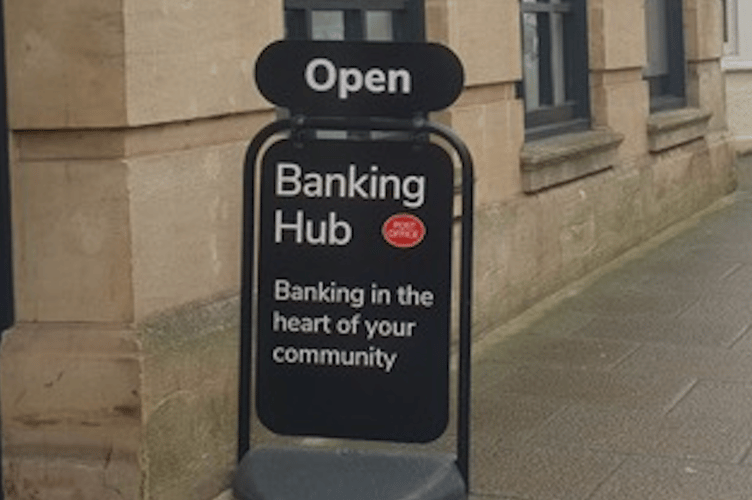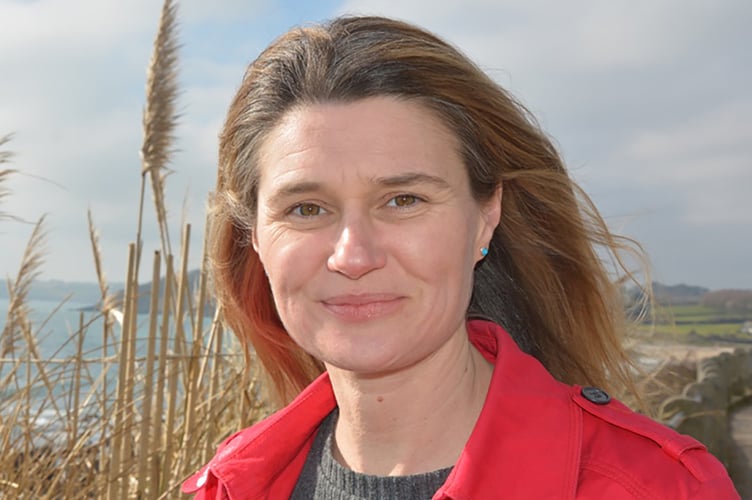THE MP for Truro and Falmouth, Jayne Kirkham, has helped secure a Banking Hub for Falmouth in the wake of the news that Lloyds Banking Group will shut its Falmouth branch in November.
The move is part of a cost cutting and digitisation drive by the bank and will involve closing down 136 high street branches across the nation.
As soon as Ms Kirkham heard that Lloyds in Falmouth was shutting, she arranged to meet Cash Access UK, who set up Banking Hubs in response to bank branch closures on high streets across the country. Instead of one bank owning a branch, the responsibility is shared between the banks, this means that they can share the running costs and all operate in one convenient location.
Ms Kirkham also coordinated with the manager of the Falmouth Business Improvement District (BID), town council and town clerk to secure the community financial hub, which guarantees access to banking services and cash, at a TBA location on the high street, Monday-Friday, 9am-5pm.
Jayne said: “I'm grateful for the swift response from Cash Access UK, Falmouth BID, and the town council. We've worked together to ensure that Falmouth will be getting a Banking Hub before Lloyds closes its doors.”

“Big banks have been pulling their branches out of our towns and cities at great speed post-Covid. When you walk from the Moor to Market Street the most obviously empty and degrading buildings are the ones that used to have banks in them. The impact on our high street is huge.”
“While I understand customers are shifting away from banking in person, changing their payment habits, using online and mobile services, and that transactions across the branches have fallen, it could be argued that this was as much a response to Covid and drastically restricted banking hours as it is a cultural shift to digital services.
“The fact of the matter remains: there are many people who struggle to bank online, who still want to be able to pay in a cheque, or get face to face advice. More importantly: we must not slip into a cashless society. Because that will gravely impact so many people.”
Ms Kirkham's championing of cash on our high streets comes after she held a roundtable event in Truro last month attended by local businesses, charities and consumer associations where it was argued that, for many, access to cash in the community remained a core asset of a fair and functioning society.
For example, many elderly pensioners still get pensions in cash. Cash can help workers on low pay budget better, with many putting their wages into four envelopes, with each envelope a self-imposed pay packet for each week of the month.
Young children often use cash because they do not have a bank account or debit card. And a Financial Lives 2022 survey found that 9 per cent of vulnerable adults in the UK used cash to pay for everything (over a twelve month period).
Jayne adds: “The fact that many people still use cash to help with budgeting, to track their spending, to ensure that they don't go into debt, at a time when many are still reeling from the cost of living crisis, that really should make us recognise and protect the role that cash plays.”
“For some people, having cash in their wallet, purse, or pocket, can really help them to survive in difficult times. It's easy to forget that, for many, a five pound note can be a lifesaver. Reducing access to cash may be convenient to banks but it could be very difficult for many people.”
For many businesses too, ongoing access to cash is also a necessity. Around 10 per cent of shops’ takings are cash. For markets that can often increase to 50 per cent. Some professions rely on cash tips e.g. hairdressers. Businesses also need somewhere to deposit their cash and get money for a float. 70 per cent of small businesses access bank branches.
“There's also a wider, economic argument to make here: if cash isn’t protected, remote online shopping would increase and many people would feel excluded from the high street. We must recognise the value of cash in the economy. For example, if you start with £50 cash and spend that in the local economy it recycles and in simplistic terms it remains £50 recycling around the local economy. If that £50 is spent elsewhere it leaves the local economy.”
The Banking Hub could take twelve months to set up, but Ms Kirkham has said that she will continue to liaise with Falmouth BID and town council to make sure that the hub is in place before Lloyds pull out of the town.




